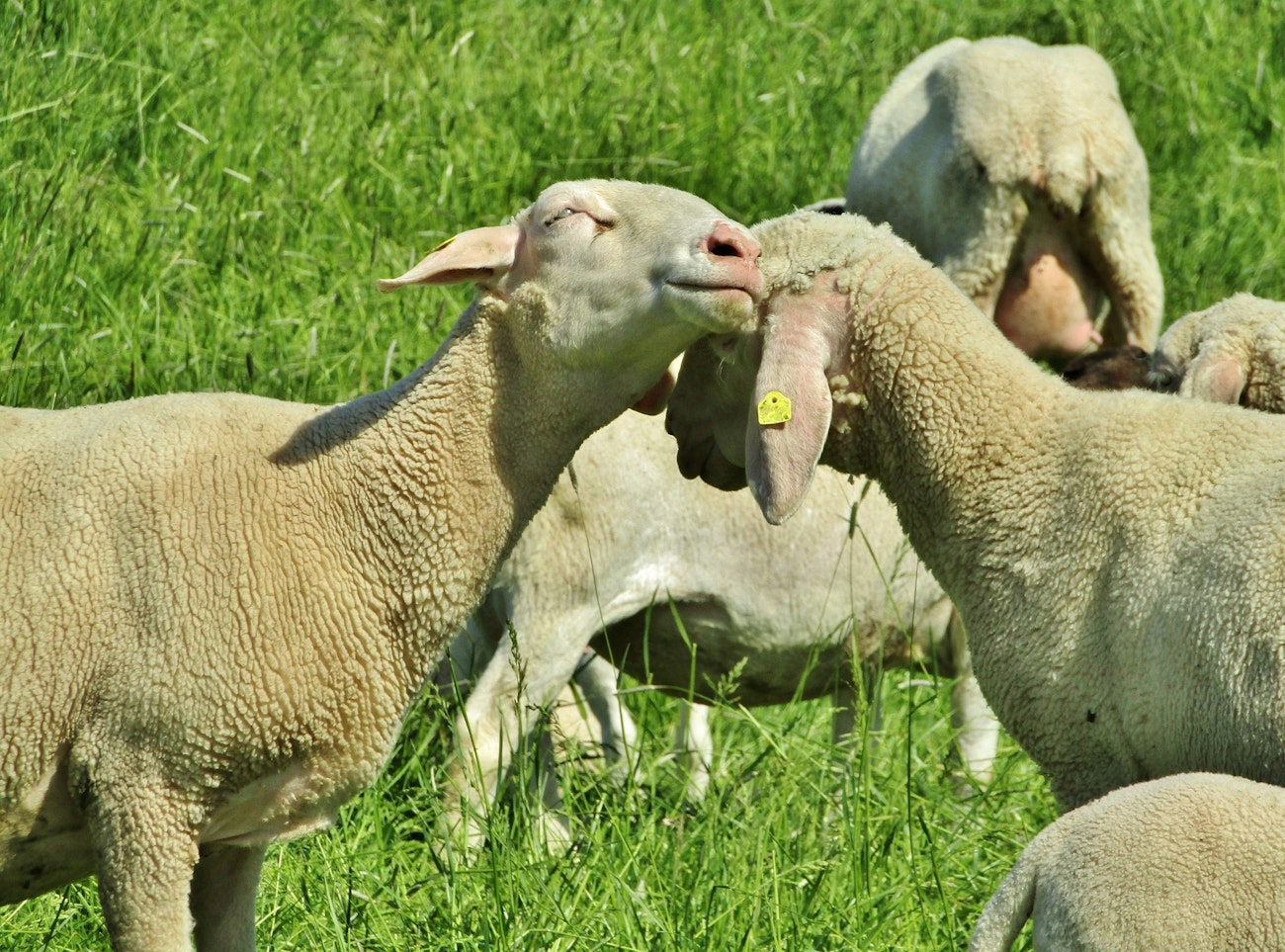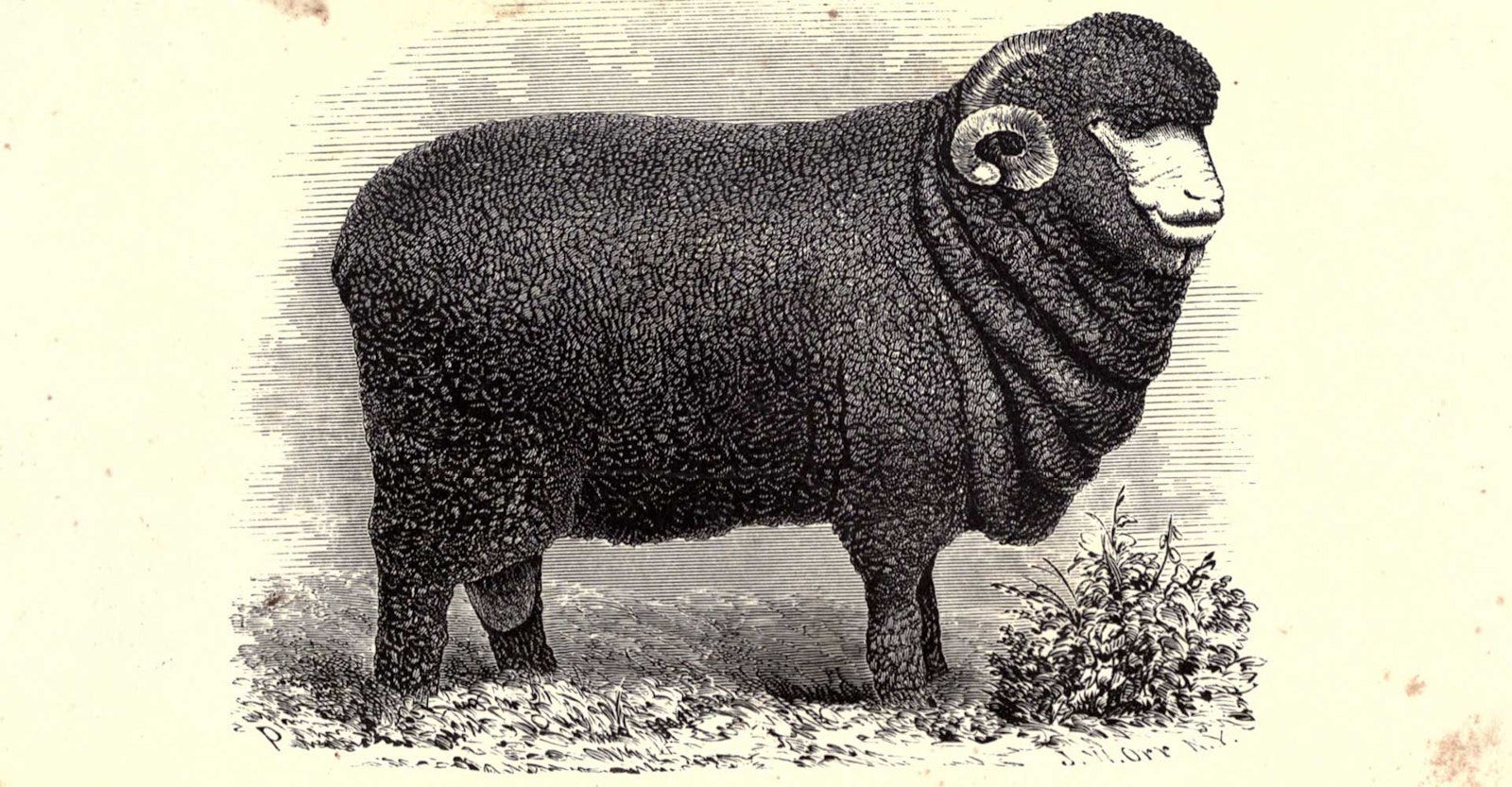The Popularity of Merino Sheep
Merino and other finewool breeds with Merino genetics dominate our crafting world, and Merino is probably the only breed non-crafters could name. So what makes these sheep so special? We’ll start with the basics this week and dive into more details in subsequent posts.
Fact #1
The Merino sheep as we know it was developed in the 13th century by Spanish royals who imported rams from Berber tribes in Morocco and cross-bred them with their own ewes. The royal family fiercely guarded their claim to the awesome Merino for centuries. Before the 18th century, it was a crime to export Merinos from Spain, and those caught doing so could be sentenced to death!1 Eventually, though, the royal family started gifting their precious sheep to royals in other countries.

Even the sheep understand how soft they are! Photo via pixabay.com
Fact #2
Merino sheep are now raised all over the world. Here in the United States? Check. Europe? Of course! Australia? Yep. (Ever read The Thorn Birds by Colleen McCullough? I’ll bet the Cleary family was raising Merinos.) In fact, Australia produces over 50 percent of the world’s Merino wool.3
In the next post, we’ll explore the characteristics of Merino wool and learn why it’s so prized by crafters and textile manufacturers alike. In the meantime: do you love Merino wool? What’s the first Merino yarn you bought, and what did you make with it? Do you have projects made of Merino you would like to share? Contact us here with your story and photos.
Rachel Koon is a former managing editor of Spin Off.
- “Merino” Wikipedia, https://en.wikipedia.org/wiki/Merino#History
- “Wool Profile,” Agricultural Marketing Resource Center, http://www.agmrc.org/commodities-products/livestock/lamb/wool-profile/
- "Australia produces 60% of all apparel wool," Fiber2Fashion, https://www.fibre2fashion.com/news/textile-news/australia-produces-60-of-all-apparel-wool-243371-newsdetails.htm
This article was originally published December 13, 2018.

